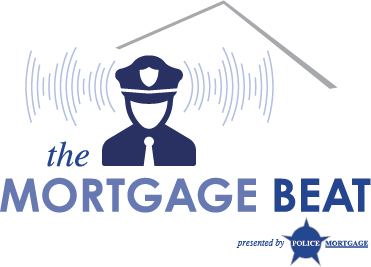
By John Aretos, CEO of Police Mortgage
A home inspection is critical for the whole process, whether it be for a police home loan or the purchase of practically any property. Home inspections matter regardless of how you plan to buy.
You can buy a house as is. You can have a home inspection but you’re waiving your right to be able to use any home inspection as a means of negotiating a reduction in price for repairs. In this situation, the buyer waives the right to have the seller be responsible for any of the repairs that have been identified in that report. The home inspection is still critical since it’s important to understand exactly the shape of the “as-is” property your considering. In other words, you need to know precisely what you are getting yourself into.
The other way that people buy homes, which is the traditional manner 99% of people do, is buying a home contingent upon a home inspection. This is written in the contract.
Home inspectors are a third party. They should be a completely unconnected party in the mortgage process, for sure. Realtors sometimes suggest home inspectors that they know. However, I always suggest to our clients to find an inspector totally independent of anyone else.
The one exception to that is your attorney. Your lawyer is going to be the best person to refer you to a home inspector. An attorney is already there to look out for your best interests and will suggest an inspector who will do the same.
I would avoid taking your realtor’s suggestion on a home inspector only because there’s a self-interest there. Most realtors are trustworthy but why take the chance.
Home inspections can cost anywhere from $300 to $500 usually. The quality of the inspection is going to obviously determine the findings. Those findings could be the difference between you buying that property or not.
Some look at home inspections as a $500 expense. I think of it as spending money now to save you from possible problems later. I would rather pay $500 than get ripped off on a house for $200,000 or more that wasn’t worth the price I paid.
Keep in mind that a home inspection is not an appraisal. An appraisal is what the lender needs to verify the collateral. That’s for the lender. The home inspection is for the customer, the person who’s buying the home. That is what the homeowner is going to use as the mechanism to check the structural integrity of the house.
A typical home inspection is going to make sure that weight-bearing walls are in place. That there’s a strong foundation with no cracks. That there’s no water seepage.
Professional home inspectors will check all of the utilities such as the furnace and the air conditioning. They’re going to check the well and the sump pump, if necessary. They are going to take a close look at the roof, especially if there are shingles. They’re going to inspect driveways, windows, outlets, electrical systems, and more. All these things factor into the home inspection.
When a home inspection is completed, the potential buyer is presented with a contract. Both parties sign the contract and then there is typically a five-business-day period for the attorney approval. That five-day period can always be extended if need be.
During that time frame, the buyer and their attorney receive a copy of the home inspection. Then they can talk about any repairs that are needed. It’s very common on a home inspection that there’s inevitably something that doesn’t materially affect the price of the home, but does need to be addressed.
A great example is a basement. Say it’s an unfinished basement, but you notice seepage from the basement wall. Then you have to get a U.S. waterproofing company to do the injection mold into it to fill the gaps. That can now be negotiated into the contract. That’s a very common example of something that is found by a home inspector that an appraiser probably isn’t going to look at.
Police Mortgage advises the first responders we work with to always get a home inspection. FHA loans require you to have an inspection. Conventional loans allow you to buy as is, but you’re going to want an inspection anyway. We highly recommend with all mortgages for police that a home inspection is done whereby the buyer fully understands the complete integrity of the property.
Police Mortgage specializes in conventional mortgages, purchase money transactions, FHA loans, and VA loans. Led by founder and CEO John Aretos, Police Mortgage is known and respected for providing clients with exceptional service, customized terms, quick and easy closings, and low money down options. To learn more about Police Mortgage, go to www.policemortgage.com or call 312-499-8878.
Police Mortgage for First Responders Who Are Second To None.

I have my bachelor’s in business administration and have been involved in the banking industry for over 10 years. During this time, I managed two of the National Police Federal Credit Union locations prior to transitioning to Police Mortgage. I have family members who are police officers with the Chicago Police Department. My work has been very rewarding, and I take pride in having assisted countless members and their families with their financial needs and financial wellness. My hobbies include exploring new restaurants in the city and running for marathons that support pediatric cancer foundations and Chicago Police Memorial Foundation’s Run To Remember. I come from a large family primarily from the south side of Chicago and love to share all the diversity and beauty the city has to offer with my two children.

I am honored to grow up in a multi-generational family of Chicago Police Officers. I joined Police Mortgage in the summer of 2020 and love the opportunity to help both first-time buyers and repeat clients alike achieve their dreams of purchasing a home. Having been born and raised in the south suburbs of Chicago, I happily live in the Lakeview neighborhood today. Along with my two younger sisters, I am a graduate of the University of Illinois at Urbana-Champaign and a lifelong Chicago Bears fan. I have a strong passion for food and love exploring the vast array of restaurants throughout our city. Nothing makes me happier than spending a summer afternoon on a golf course with family and friends!

I joined my brother at Police Mortgage as a loan officer in August of 2021 after a 10-year career in sales and marketing. Most recently, I worked as a Senior Account Executive for Ricoh North America, an office electronics company, where my main responsibilities were building new client relationships and maintaining over 400 existing customer accounts. I believe my work experience has transferred over to the mortgage industry well, because I am able to multi-task effectively while working with multiple customers. The skillset I learned in my previous employment allows me to stay organized and to manage my time well for my customers. My number one goal is always to make the loan process as quick and painless as possible for our borrowers. I am excited to further develop the Police Mortgage brand with my brother. It is a unique situation, and I believe working in an office together allows us to help our borrowers even more due to streamlined communication and our ability to help each other with our respective files. I like to spend my free time relaxing, watching sports, exercising, going out to eat with my wife, and trying to keep up with our three daughters – all under five years old!

After graduating from the University of Missouri in 2015, I moved to Chicago where I began a career in marketing at a firm called Ansira. I sought a career change and contacted Police Mortgage, where I was first introduced to the mortgage industry. I have spent the last 5 years training with our CEO, John Aretos, who has taught me all of the intricacies of the mortgage process. I love finding solutions for our clients to help them purchase the home of their dreams. I feel a huge sense of accomplishment when helping homebuyers, especially first-time homebuyers, all the way through the loan process, from pre-approval to closing day. I recently moved back to my hometown of St. Louis, where we opened a new office. I am excited to help start this new chapter for Police Mortgage. My wife, Megan, and I are happy to be back in our hometown. We are always checking out new outdoor events such as music or food festivals – anywhere we can take our dog, Remy!

As the CEO of an organization associated with serving the Police and their loved ones, I am privileged to play a role in helping our clients achieve their life’s financial goals. Our mission is to make the home buying or refinancing process as comfortable as possible, providing our clients with competitive products and excellent service.
I was born and raised in the Chicago metropolitan area, and I have a deep-rooted love and appreciation for the diverse culture which makes our city so special. My two older siblings and I grew up working in our parent’s restaurant, which instilled a work ethic and sense of family that I carry with me to this day.
I am a graduate of Indiana University and have been involved in the mortgage industry for nearly 25 years, helping thousands of clients save money or finance the home of their dreams. My passions are passing down my love of food, music, art, snow skiing, and red wine to my three children, who motivate me to be a better person each and every day!